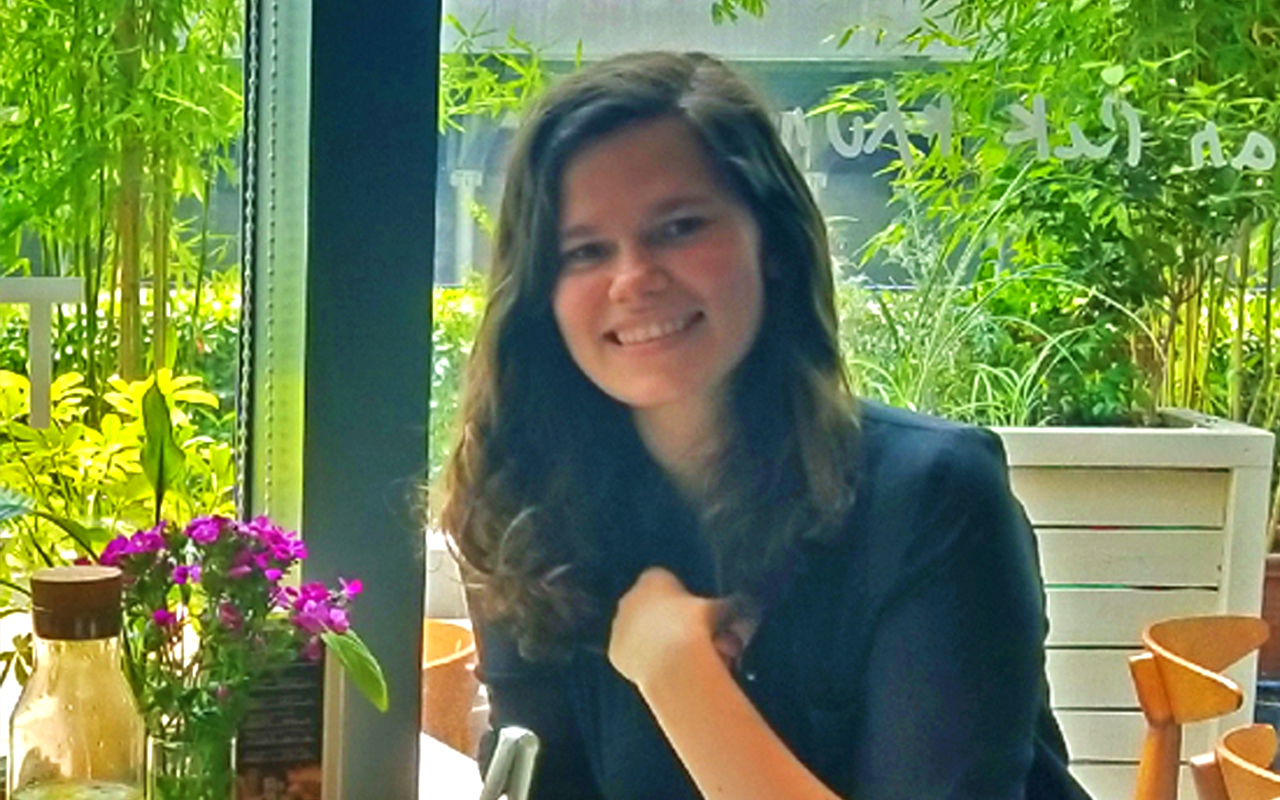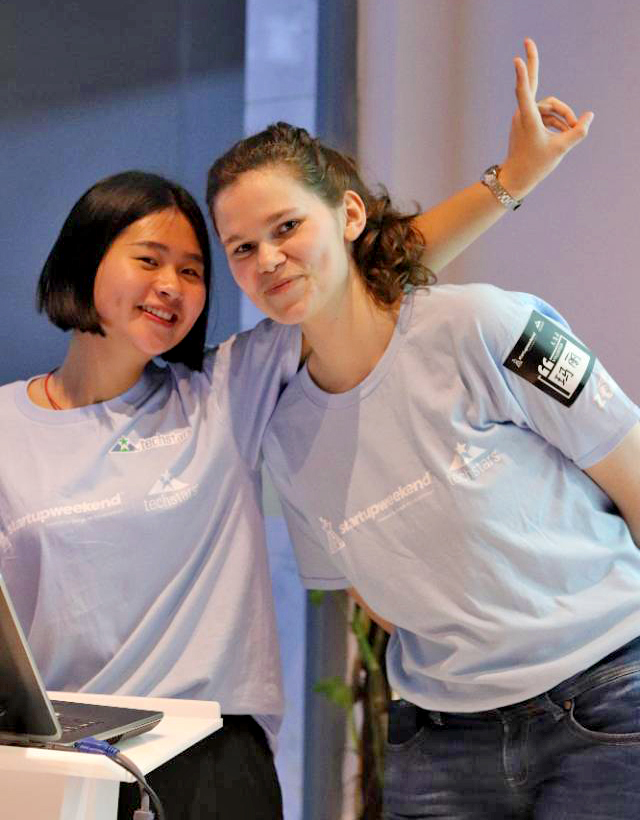Marie Prevot, a SKEMA Business School alumna who completed her studies at the Lille, Raleigh, and Suzhou campuses, currently manages CoreCreation, a graphic design company for entrepreneurs and small businesses based in China. In this interview, she talks about how she started her company, how SKEMA Ventures helped her connect to the entrepreneurship ecosystem in Suzhou, China, the challenges she faced, and more.
What made you choose to study at SKEMA’s Suzhou campus for one year?
After high school, I attended a ‘discovery class’ on the Chinese language and immediately fell in love with it – I saw learning this vastly different language as a worthwhile challenge. I often studied Chinese during the holidays and told myself that one day I would go to China and experience all the stories my teacher told me about. One of my key motivations for choosing SKEMA, initially, was its campus in Suzhou and I’m really happy with my choice.

How did you start your own company in Suzhou?
At first, it seemed quite complicated to open a company here. But SKEMA’s support made me feel reassured. I contacted Suzhou Dushu Lake Entrepreneurial University (a local government bureau that provides funding and incubators for startups), pitched my idea to them, and they guided me through the entire process of setting up my company. Everything was in Chinese, so getting help from Chinese people was really helpful.
What is CoreCreation?
When I was working at a startup back in France and in Auchan, Shanghai, I realized how important design is, and how complicated it is to find the right designer to suit one’s needs. I understood the problem that many startups face – not having enough resources to hire a professional designer to create their branding or social media images. While working in the marketing department or even as a project manager, I often found myself learning how to design by myself to finish a project more quickly; or, because the design costs of big design companies were too high for the small startup I worked in.
This is when I realized I truly enjoyed innovation, creation and design, and founded CoreCreation. We provide high-quality graphic design (branding, print design, digital design, and web design) at a price that accommodates the more modest budget and long-term requirements of entrepreneurs and small companies – those that do not have the funds to work with large design companies. My goal is to learn and grow alongside my clients, and for my interns and future employees to do the same.
 Can you tell us about the entrepreneurship competition you won?
Can you tell us about the entrepreneurship competition you won?
Suzhou Dushu Lake Entrepreneurial University is always eager to help out and make us aware of the entrepreneurship competitions we can participate in. On one occasion, they introduced a competition to me at my incubator and helped us apply. My partner, though English, can speak Chinese fluently and was able to present our company in Chinese to the professional Chinese jury of the competition. They asked us very insightful questions at the end and we were very happy to win the second prize. Not only that, but the members of the jury contacted us for design work and recommended our work to their friends.
How did SKEMA connect you to the local entrepreneurship ecosystem of Suzhou?
SKEMA helped me to participate in useful entrepreneurship events such as conferences about entrepreneurship and larger events like “Google Startup Week-end Suzhou” (organized by ZoneX, where teams have 54 hours to create a company and pitch the concept to a jury). This gave me the opportunity to meet like-minded entrepreneurs and, more importantly, professional mentors and investors. Also, SKEMA often makes us aware of internships available in startups in Shanghai (sometimes, startups created by former SKEMA students) which is an interesting step if a student isn’t confident enough to create the company right away and prefers gaining more experience.
What are the challenges you are currently facing?
I am not fluent in Chinese yet and I’m gradually learning the aspects of doing business in China. Our current clients are mostly foreigners based here. Therefore, our next step is to hire Chinese interns interested in graphic design (no former experience required, just willingness to work hard to hone their skill). This will help us too as we’ll be “forced” to speak with them in Chinese every day which will improve our language level.
It will also enable us to gain insights into the Chinese design style (Chinese style of design and the Western style can be very different sometimes) and a better understanding of the Chinese way of doing business. Apart from the salary, the interns will benefit from the training in graphic design, real responsibility and independence where they will learn how to be project managers, and learn the western graphic design style which could help them differentiate themselves from other Chinese designers later in their career.



